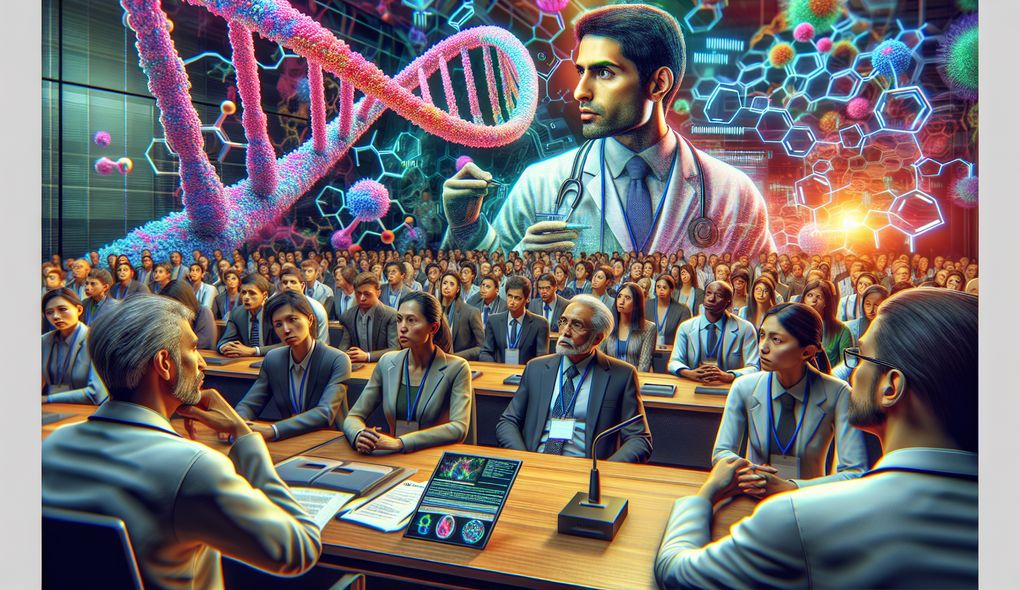Can you describe a challenging problem you faced in your previous work and how you solved it?
JUNIOR LEVEL

Sample answer to the question:
In my previous work, I faced a challenging problem when analyzing genetic data for a patient with a complex cancerous condition. The data was extensive and difficult to interpret, and it was crucial to identify specific mutations to devise an effective treatment plan. To solve this problem, I collaborated with a team of researchers and utilized advanced bioinformatics tools to analyze the data. We applied various algorithms and filters to narrow down the potential mutations and prioritize the most significant ones. Through meticulous analysis and consultations with experts, we identified a key mutation that informed the personalized treatment plan for the patient. This approach proved successful, as the patient showed an encouraging response to the treatment. This experience helped me hone my problem-solving skills and strengthened my ability to navigate complex genetic data.
Here is a more solid answer:
In my previous work as a Molecular Oncologist, I encountered a challenging problem while analyzing the genetic data of a patient with a complex cancerous condition. The data consisted of extensive next-generation sequencing results, making it challenging to identify relevant mutations. I took the lead in collaborating with a multidisciplinary team, including bioinformaticians and geneticists, to devise a comprehensive approach. We utilized various bioinformatics tools, such as variant calling and annotation pipelines, to filter and prioritize potential mutations based on their functional impact and known cancer-associated genes. Through regular team meetings and effective communication, we discussed and evaluated the most promising candidates. This collaborative effort enabled us to identify a driver mutation directly linked to the patient's cancer and informed the development of personalized treatment options. The patient's response to the treatment was remarkable, with a significant reduction in tumor size and improved overall well-being. This experience showcased my ability to analyze complex genetic data, engage in effective collaboration, and utilize advanced bioinformatics tools to deliver impactful results in oncology research.
Why is this a more solid answer?
The solid answer provides more specific details about the techniques used, highlighting the candidate's proficiency with bioinformatics tools and their ability to collaborate with a multidisciplinary team. It also emphasizes the positive outcome of the solution and the impact on the patient's well-being. However, it could further improve by including specific examples of effective communication during the collaboration process.
An example of a exceptional answer:
During my tenure as a Molecular Oncologist, I faced a complex problem in analyzing the genetic data of a patient with an aggressive form of cancer. The challenge was twofold: the extensive data volume and the need for real-time analysis to guide urgent treatment decisions. To tackle this, I established a close partnership with computational biologists and data scientists from a renowned research institution. Together, we implemented an innovative cloud-based pipeline that leveraged high-performance computing and machine learning algorithms to handle the large dataset efficiently. By integrating my domain expertise with their computational skills, we refined the pipeline to prioritize potential driver mutations based on functional impact, pathway enrichment, and drug-gene interactions. To ensure effective communication and timely decision-making, we established a daily virtual meeting where we discussed emerging findings, reviewed the prioritized mutations, and consolidated treatment recommendations. As a result, we successfully identified a rare actionable mutation associated with targeted therapies, leading to a significant improvement in the patient's condition and prolonged survival. This experience not only showcased my ability to overcome complex challenges in complex molecular data analysis but also reinforced my commitment to interdisciplinary collaboration and innovation-driven oncology research.
Why is this an exceptional answer?
The exceptional answer goes above and beyond by addressing the challenges in real-time analysis, highlighting the candidate's innovative solution using cloud-based pipelines and machine learning algorithms. It also elevates the collaboration aspect by involving a renowned research institution and implementing daily virtual meetings for effective communication and decision-making. The positive impact on the patient's condition and the candidate's commitment to interdisciplinary collaboration and innovation make this answer exceptional.
How to prepare for this question:
- Describe a complex problem you faced in your previous work related to genetic data analysis.
- Explain the specific actions you took to solve the problem, including the techniques, tools, and collaborations involved.
- Emphasize the positive outcomes and the impact of your solution on the patient or research.
- Highlight your ability to analyze complex genetic data and effectively communicate and collaborate with multidisciplinary teams.
- Stay updated with the latest advancements in bioinformatics and molecular oncology research.
What are interviewers evaluating with this question?
- Ability to analyze and interpret complex genetic data
- Strong problem-solving and critical thinking skills
- Effective communication and teamwork abilities

